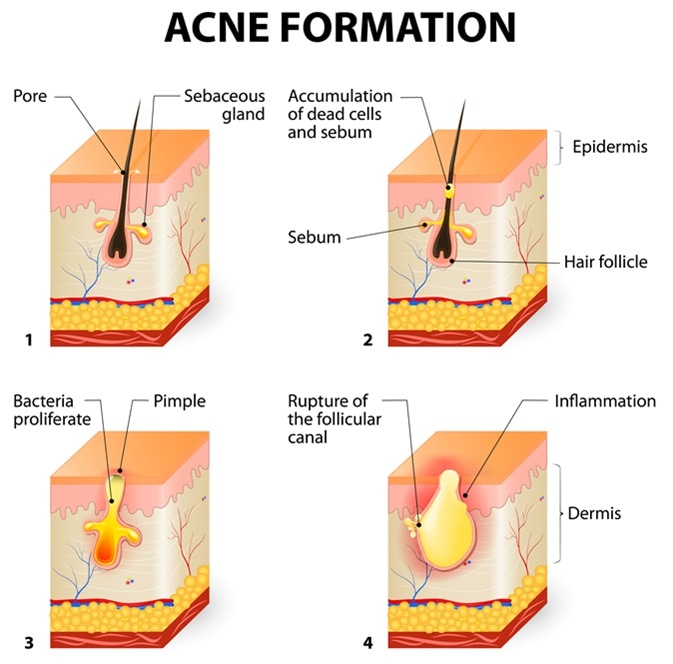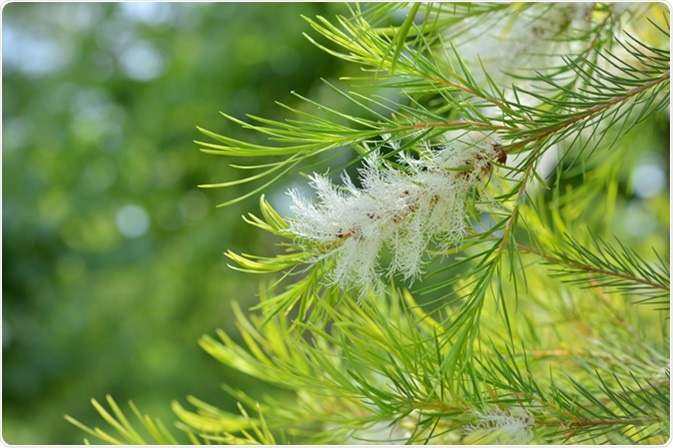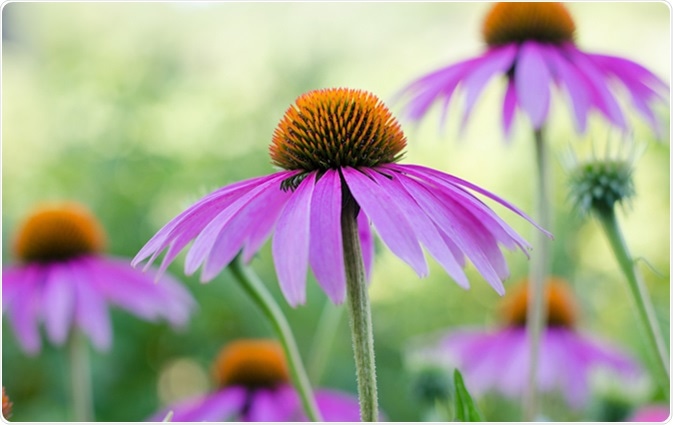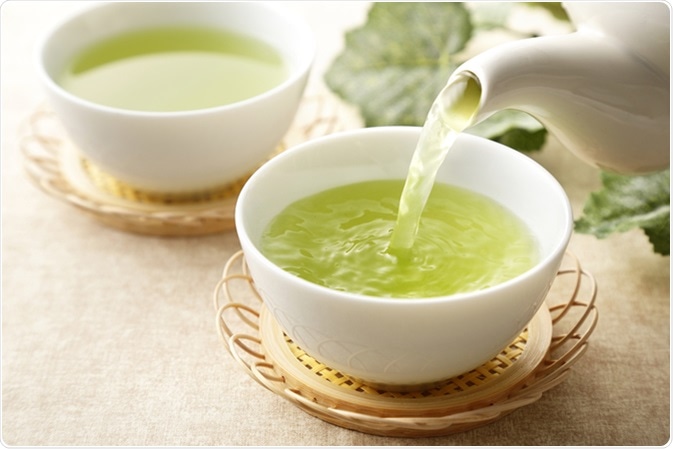Acne is a common skin condition that will affect most individuals at some point during their lifetime. More severe cases may benefit from oral antibiotics and topical treatments.
Cases of acne can range in severity, with milder cases treatable by over-the-counter medicine. However, many home remedies can also be used to help relieve symptoms.
What is Acne?
Acne is characterized by spots and oily skin, primarily on the face, back, and chest. Although commonly thought to occur during adolescence and puberty, 5% of American adults develop acne every year.
Research suggests that the condition is often caused by changes in hormone levels, which lead to overproduction of an oily lubricant called sebum.
Sebaceous glands, which are attached to hair follicles on the surface of the skin, produce sebum to help lubricate hair and skin.
When mixed with dead skin cells, large amounts of sebum can block hair follicles and create the lesions typically known as whiteheads. Blackheads may also occur.

Formation of skin acne or pimple. The sebum in the clogged pore promotes the growth of a certain bacteria (Propionibacterium Acnes). This leads to the redness and inflammation associated with pimples. Image Credit: Designua / Shutterstock
What are Some Acne Treatment Options?
There are various over-the-counter and prescription drug options that treat acne. For severe cases, doctors will often prescribe a combination of oral antibiotics and topical ointments to reduce the symptoms experienced.
For some individuals, particularly women, oral contraceptive pills may be prescribed to stabilize hormone levels. Additionally, mild cases of acne can be treated with several home remedies that help alleviate symptoms.
Tea Tree Oil
Tea tree oil is commonly used in many skincare products to help control and combat oily and blemish-prone skin.
Originally used to treat coughs, wounds and colds, the oil derived from Australia’s Melaleuca alternifolia plant is a popular acne home remedy because of its antimicrobial properties. One study of its effectiveness showed a reduction in inflamed lesions compared to 5% of benzoyl peroxide. Furthermore, fewer people reported side effects with tea tree oil than with benzoyl peroxide. However, tea tree oil may only be effective for mild to moderate cases of acne.
Apart from buying products with tea tree oil in, raw tea tree oil can be diluted with water and applied directly to affected areas.

Tea-Tree (Narrow-leaved Paperbark), Melaleuca alternifolia. Image Credit: tamayura / Shutterstock
Echinacea purpurea
Echinacea purpurea extract can be purchased at most health stores. Research has found that topical use can reduce acne severity, as it readily destroys P. acnes, the bacteria which is most often associated with acne. Echinacea purpurea is also thought to possess excellent anti-inflammatory properties. The extract has also been useful in treating other skin conditions, including psoriasis and wounds.

Echinacea purple. A perennial plant of the Asteraceae family. Medicinal flower to enhance immunity. Image Credit: Mitand73 / Shutterstock
Eucalyptus
Some species of eucalyptus and their extracts have been investigated for their impact on several conditions, including acne. The eucalyptus plant has antimicrobial and general antiseptic properties that may help target acne-causing P. acnes. The direct application of eucalyptus oil onto spots may be useful for those wishing to manage their acne using home remedies.
Green Tea
Topical lotions containing green tea have been reported to be effective in treating bouts of acne. Specifically, green tea appears to reduce sebum production. Furthermore, green tea does not appear to cause any adverse effects such as skin irritation. Boiled, then cooled green tea may also be effective when applied directly to problem areas.

Japanese green tea. Image Credit: Nishihama / Shutterstock
The use of acne home remedies may become more popular as research increasingly highlights the development of antibiotic resistance due to their regular prescription. In addition to previously mentioned home remedies, other self-care techniques are useful for managing acne. Skin should be cleaned gently with mild soap and water each day, but not overly frequently. Cosmetics and other potential irritants should be avoided. If such products are used, non-comedogenic versions should be chosen. Although exercise does directly improve acne, is associated with improved mood and self-esteem.
Further Reading
Last Updated: Nov 25, 2018